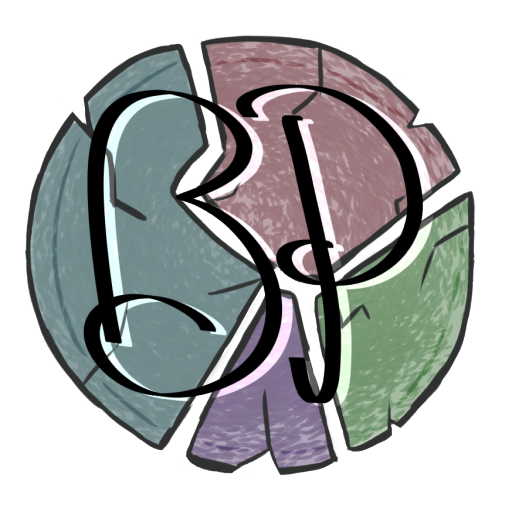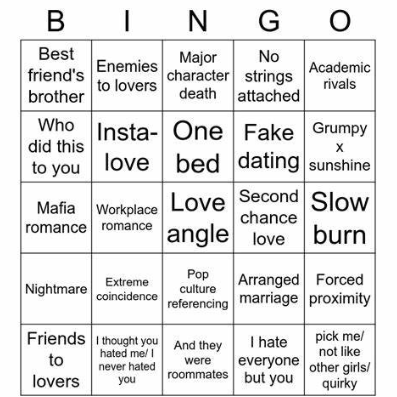Book tropes describe a variety of recurring plot devices, character archetypes, and themes that are written consistently enough to become recognizable by readers and warrant their own names. While they are not necessarily a new phenomenon, their influence has certainly grown with the rise of social media. They’ve become a powerful marketing tool for authors and publishers to reach their target audiences more effectively. What do the people want to read, and how many times can we resell it, force it down readers’ throats, before it tastes like ash?
Some of the most popular tropes that I’ve encountered online, especially on BookTok—a niche within TikTok dedicated to book-related content—are “enemies to lovers,” “romantasy,” and “slow burn romance.” These tropes in particular are very typical and straightforward, allowing readers to find what they are searching for without spoiling the novel or relying entirely on what is trending in the book world. They’re a reflection of the author’s personal interests and storytelling preferences, rather than being recycled solely for sales. However, there is a delicate balance when it comes to book tropes, teetering on what’s helpful and what’s harmful. That balance fractures each time there is a new bestseller that heavily relies on another trending trope. It’s here that the suffocating grip of trope-ification reveals itself in the online book sphere.
The same aforementioned tropes, along with many others, have become more elaborate and over-saturated, leading to the introduction of hyper-specific moments in books that, ultimately, oversimplify literature. For example, two popular subcategories of the “enemies to lovers” trope are the “one bed” and the “who did this to you?” tropes. The former is self-explanatory: two love interests are forced in an environment where they must share a single bed. The latter occurs when the main character—usually a woman—is hurt and her love interest, an incredibly hot and possessive man, asks who caused her harm. Some other honorable mentions are “knife to the throat” (yes, that’s a real thing), “fake dating,” and “touch her and you die” (also real).
Don’t get me wrong—I’d be lying if I said that many of these tropes aren’t guilty pleasures of mine. They can offer an enjoyable escape, allowing me to switch off my brain and indulge in a light, cheesy read without worrying too much about the plot or being blindsided by unexpected twists. But it’s still clear that these hyper-specific tropes often serve as a cash grab by authors who know they will sell.
Lately, I’ve read countless books featuring these exact scenes (namely, very popular fantasy and romance novels), and in many cases, they are the only moments of any substance. The rest of the book feels like filler, written just to get to the “money shot”—the trope everyone knows and loves. Personally, I used to love the “one bed” trope, but I’ve seen it so often now that I close the book the moment it appears. It feels like my brain is rotting from reading the same regurgitated scenes and plots in every new, popular novel. Not only does it seem disingenuous but it also makes literature in general feel increasingly one-dimensional and capitalistic. As in, what would sell more copies, make me more money? Rather than, what do I actually enjoy writing, and what would I like to read?
I feel as though I should disclaim, once again, that this is not an attempt to “yuck anyone’s yum.” Everyone has their guilty pleasures, myself included. I understand that it’s nice to know exactly what you’re getting into so you don’t waste your time on something you won’t enjoy reading. However, that doesn’t change the fact that this trend, like so many others, is also problematic, causing my brain—and literature itself—to start on a path of slow decay.

